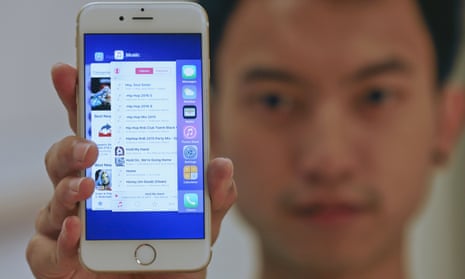Users complaining that their iPhones have slowed down after updating to the latest iOS 9 software may not be imagining it.
The new iOS 9 operating system works on models from 2011’s iPhone 4s onwards, with the company claiming that more than 50% of iOS users had already installed the update within a week of its release.
However, some users of Apple’s official discussion forums are already criticising the impact on their older handsets.
Videos from vloggers iAppleBytes directly comparing the latest iOS 9.0.1 software to iOS 8.4.1 running on an iPhone 4S, 5 and 5S have also demonstrated a noticeable amount of slowdown with the new update.
The smartphones take longer to start up, camera performance is slower, as is launching apps and switching between them.
Some actions take a very similar amount of time, particularly on the newer iPhones. The performance of Apple’s virtual assistant Siri actually seems to be slightly faster, although some users within Apple’s forums have disabled Siri’s new app prediction features in an attempt to speed up the rest of the phone.
The issue of new software slowing down older phones is familiar to smartphone owners. New features demand more resources from the device, and can therefore slow down normal operations and affect battery life.
Some updates – Google’s Android Lollipop in 2014 for example – focus on performance and optimisation, and can actually improve the speed of the smartphone or tablet they are installed on.
This does not appear to be the case with iOS 9, although in other ways, it has been one of the smoothest annual updates for Apple’s devices.
On its release in 2014, iOS 8 caused issues for people upgrading because it demanded a 5GB of free of space meaning many had to delete music, apps and photos from their devices just to install the update.
Apple corrected the issue with iOS 9 requiring under 1.5GB of space, and providing support for smaller applications, but its impact on the speed of older devices is evident.
While some users will try and avoid updating to the latest version of iOS, it could put them at risk of security vulnerabilities and will eventually stop being supported by the latest apps, making an upgrade inevitable at some point.

Comments (…)
Sign in or create your Guardian account to join the discussion